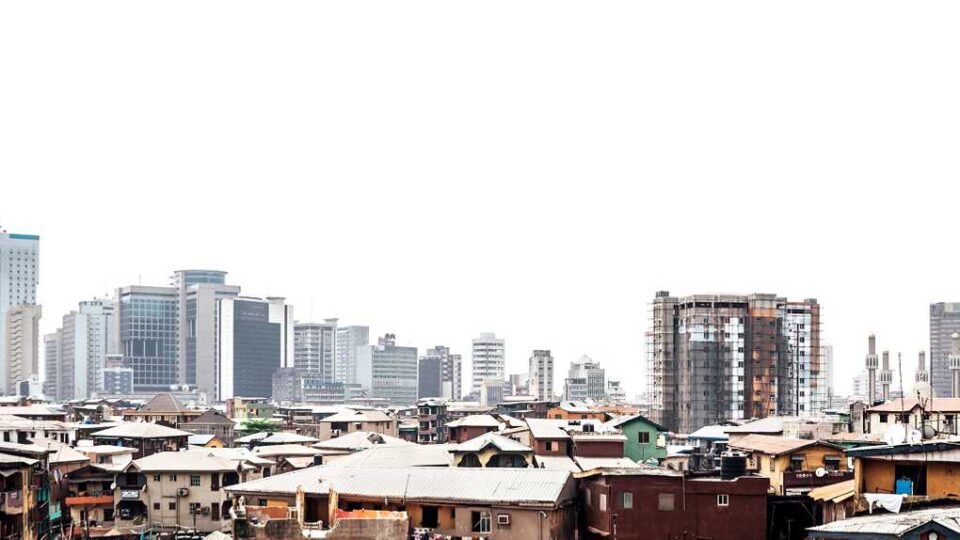Geography
Nigeria borders Niger, Benin, Chad and Cameroon and is bordered by the Gulf of Guinea in the Atlantic Ocean. Covering an area more than twice the size of California, Nigeria’s geography is varied, with vast plains in the northern and southern regions and hilly topography in the center and along the border with Cameroon in the southeast. The coastal regions are dominated by mangroves and swamps, while dense tropical forests flourish inland. The flora includes economically valuable oil palms, tropical grasslands with carob, baobab and tamarind trees, and swathes of forest have been cleared to make way for cocoa and rubber plantations.
The indigenous wildlife of hyenas, lions, giraffes, antelopes, monkeys and primates, elephants and leopards are now only visible in the country’s protected parks and nature reserves.
Nigeria is home to abundant deposits of natural gas and oil, as well as metals such as gold, tin, zinc and lead. The country has a tropical climate, with humid equatorial conditions in the south, where the rainy season extends from March to November, and less rainfall in the arid north. The south, where average temperatures range from 20°C to 33°C, also has lower temperature variations than the north, where summer days can exceed 38°C while nights in the same season can experience frost.
Démographie du Nigeria
Nigeria is distinguished by the diversity of its population. The most populous country on the continent, it is home to some 250 ethnic groups speaking more than 500 languages. In addition to English, the official language, Igbo, Fulani, Hausa and Yoruba are widely spoken. Freedom of religion is enshrined in the constitution. More than 40 percent of the population is Muslim, and there are about the same number of Christians, although their religious practices are often mixed with rituals of traditional religions. About half the population is rural. The country’s capital, Abuja, is located in the Federal Capital Territory in the center of the country, but the historic capital of Lagos is very cosmopolitan and remains the country’s leading city for commerce, culture and economic activity.
Economy
In general, the south is home to all of the country’s major industrial centers and trading ports. Nigeria’s economy is one of Africa’s powerhouses, but it still faces significant challenges. As an oil-rich country, Nigeria has sought to capitalize on its natural resources and establish itself as an oil and gas producer, while neglecting agriculture to some extent, with the result that food production is no longer able to meet domestic demand. As world oil prices have plummeted over the years, importing agricultural commodities has become increasingly expensive and difficult for the country to sustain.
To date, mining is the largest and fastest growing economic sector in Nigeria, while cocoa beans remain the main agricultural export.
Culture
Nigeria owes its rich and varied culture to a mixed heritage, blending traditional African cultures with European and Arab influences. Although a number of traditional customs and practices were discouraged and even suppressed by colonial governments, some, such as secret societies and rites of passage for young boys, were revived after the country’s independence and now blend with the international sophistication of the cities in a fascinating mix. Nigeria’s cultural and musical life is extremely vibrant; for more information, please read our article on entertainment in Nigeria.
Political framework
Nigeria is a federal republic composed of 36 states. It is a democracy with a directly elected president (currently Muhammadu Buhari) who serves as both head of the executive and head of state. Under the 1999 constitution, legislative power is vested in a bicameral National Assembly. The President, members of the House of Representatives and the Senate are all elected for four-year terms.
Employing expats in Nigeria? Here’s a useful link: Nigeria EOR

